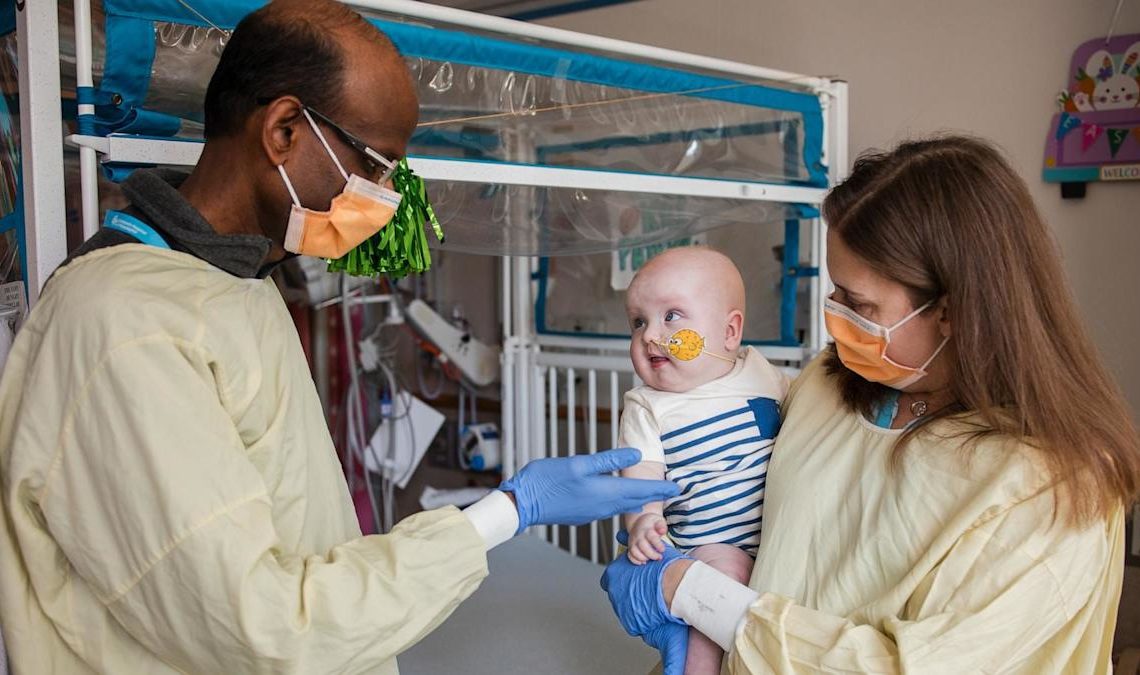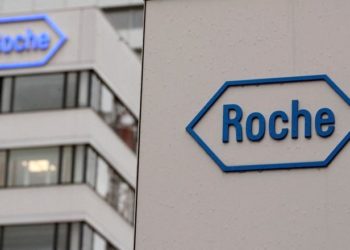Just six months after a newborn at Children’s Hospital of Philadelphia was diagnosed with a rare and life-threatening metabolic disorder, doctors were able to develop a personalized treatment involving a first-of-its-kind approach to gene-editing that could end up changing the course of his life — and help others with rare diseases in the future.
The metabolic condition, called carbamoyl-phosphate synthetase 1 deficiency, affects the urea cycle and can cause deadly levels of ammonia to build up in the blood, leading to severe and permanent brain damage. It affects about 1 in 1.3 million people. Among babies diagnosed with it, the disease kills 50% of them by early infancy.
The baby at the Philadelphia hospital “had the most severe variant of the most severe metabolic condition related to the urea cycle,” Dr. Ahrens-Nicklas, the study’s lead author and a metabolic pediatrician within the metabolic disease program and the division of human genetics at Children’s Hospital of Philadelphia, told ABC News. “This meant that we had to expedite the pathway for personalized therapy we were already working on.”
MORE: Weight-loss meds may give people more control over drinking, study shows
While a liver transplant can improve outcomes, many infants develop issues related to the high levels of ammonia in their blood that can lead to neurological complications such as developmental delay, intellectual disability, and severe brain swelling or damage, before they are large enough to get a liver transplant.
The treatment, described in a new study published in The New England Journal of Medicine and presented at the American Society of Gene and Cell Therapy meeting, relies on a complex therapy known as CRISPR, a powerful gene-editing tool. CRISPR works like a pair of molecular scissors, allowing scientists to precisely slice and repair faulty genes. Using CRISPR, the team was able to create a treatment tailored to the baby’s specific genetic mutation.
Doctors began the process by creating a streamlined approach to base-editing therapy, a technique where a single component of the baby’s genome specific was changed to match the variant of his condition. Doctors then delivered the altered DNA directly to liver cells using a lipid nanoparticle — a tiny, fat-based carrier that helps transport treatment to the right place in the body. This approach was designed specifically for this single patient and marks a major step forward in personalized medicine.
The goal is to reuse key parts of the treatment — like the lipid nanoparticle and mRNA — and simply swap in a custom set of instructions for each patient’s specific gene mutation, Ahrens-Nicklas explained.
“Think of it like a GPS signal,” Dr. Kiran Musunuru, director of the Penn Cardiovascular Institute’s Genetic and Epigenetic Origins of Disease Program, told ABC News. “You can change where the GPS is going depending on what specific sequence of genes you want to change.”
MORE: US drug overdose deaths fell by nearly 27% last year, reaching lowest levels since 2019: CDC
This new approach to gene editing could lead to faster personalized therapies for this and other rare diseases. Another advantage, the doctors pointed out, is that it can be given again later in life should the patient require it, unlike other delivery systems.
Of note, the therapy was developed within just six months of the baby’s birth. The child received two infusions at 7 and 8 months, respectively. At the seven-week follow-up, the patient was then able to receive more dietary protein and reduce the dose the medication dose by 50% with no bad side effects.
This development is giving doctors hope for patients with rare genetic disease who would otherwise have no other treatment options, Musunuru said.
“The next steps would be to build genomic centers of excellence where patients can get unique therapies created for them in real time” he said.
Dr. Keerthana Pakanati is a Cardiovascular Disease Fellow at Virginia Mason Franciscan Health and a member of the ABC News Medical Unit.
Doctors save baby’s life with first-ever gene fix for deadly rare disease originally appeared on abcnews.go.com
The post Doctors save baby’s life with first-ever gene fix for deadly rare disease appeared first on ABC News.



